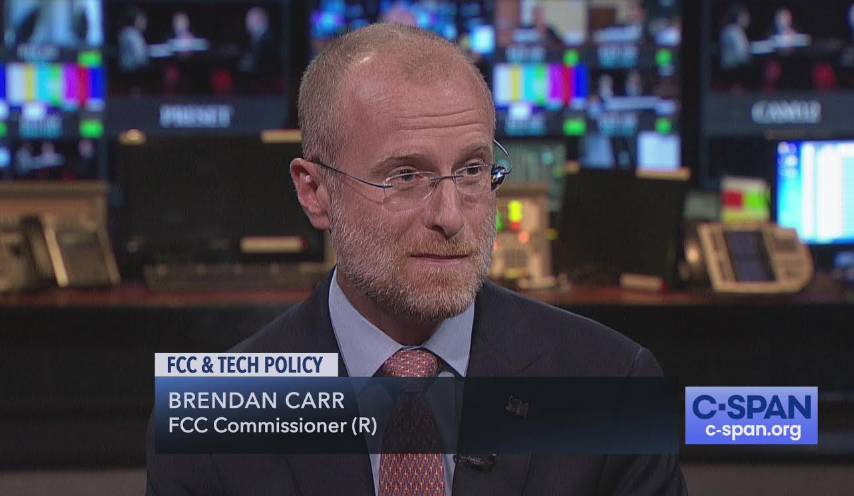FCC's Carr Slams Twitter for 'Manipulated' Tag on Biden Video

The smarter way to stay on top of the multichannel video marketplace. Sign up below.
You are now subscribed
Your newsletter sign-up was successful
FCC commissioner Brendan Carr took to the pages of the Wall Street Journal Wednesday (March 18) to take aim at Twitter's new "manipulated media" tag on an edited video of Democratic Presidential front-runner Joe Biden that was tweeted by White House media director Dan Scavino.
The video appeared to show Biden saying that the Democrats couldn't win and Trump would be re-elected.
Related: FCC's Carr Calls Dems' Subpoenas 'Secret & Partisan'
In the op ed, Carr opined that Twitter's action was an effort to curtail legal political speech, a cry wolf approach that makes it harder "to identify and build consensus around media that has truly been doctored or manipulated."
Carr said that "political actors and media gatekeepers"--the White House has accused Democrats and mainstream media of teaming up--had a new tool in their effort to censor or discourage political speech, but allowing users to turn off such "bias filters" could help.
Carr tweeted a link to the commentary:
[embed]https://twitter.com/BrendanCarrFCC/status/1240264251157217280[/embed]
The smarter way to stay on top of the multichannel video marketplace. Sign up below.
The commissioner said the Biden camp pressured Twitter and Facebook to take the tweet down or label it disinformation, thus the "manipulated media" tag he said had been "slapped" on it.
Under pressure from Washington to weed out deep fakes and other deceptive video, Twitter last month adopted a policy on "synthetic and manipulated" media, with Scavino's tweet reportedly the first such tag applied.
Related: Facebook Bias Audit Concludes There Is Still Work to Be Done.
Carr said Facebook also put a "partly false" tag on the video.
Carr likened the moves to someone going after the iconic 1964 Lyndon Johnson campaign "Daisy" ad because viewers might think the child had actually been killed in a nuclear blast.
Carr told the Wall Street Journal readership that political gatekeepers don't really think the clips are misleading, but instead are worried they will be effective as political satire, which uses humor to draw people into a discussion.
Carr said there is a big difference between such satire and the "real" fakes.
"Internet speech, viral videos and memes threaten those seeking to control the political narrative. By bypassing self-appointed gatekeepers, an outsider can now carry a message directly to the public," he wrote. "The media must often play catch-up—covering the messages and story lines that are already resonating with people. This explains efforts to equate political speech with the entirely separate categories of doctored deep fakes, illegal content and deceptive cheap fakes."
Contributing editor John Eggerton has been an editor and/or writer on media regulation, legislation and policy for over four decades, including covering the FCC, FTC, Congress, the major media trade associations, and the federal courts. In addition to Multichannel News and Broadcasting + Cable, his work has appeared in Radio World, TV Technology, TV Fax, This Week in Consumer Electronics, Variety and the Encyclopedia Britannica.

